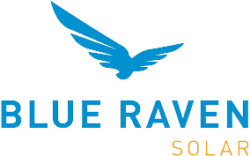Benefits of Solar Energy
Solar energy offers numerous advantages that will enhance your home for years to come.
- Reduced carbon footprint: The sun is one of the universe's most abundant clean energy sources, meaning you can minimize or conquer your home's dependence on non-renewable sources.
- Better energy independence: Solar panel systems with battery backups and storage systems work through power outages and emergencies, and you won't have to depend on the power grid for your safety and comfort.
- Lowered energy bills: You can dodge the premium cost of grid-tied power by creating some electricity at home. Plus, many states provide net metering which can allow you to sell your unused energy back to help pay for your energy bill.
What Solar Incentives Are Available to Pasadena Homeowners?
The state of Texas offers numerous solar incentives to help cut your solar system costs. Here is a breakdown of applicable solar programs where you live.
Incentive Type: Property Tax Incentive
Website: comptroller.texas.govIncentive Amount:
100%
Incentive Type: Rebate Program
Website: texasgasservice.comIncentive Amount:
Free Equipment Program: Free appliance installation and weatherization services
Home Improvement (includes attic insulation, duct sealing, duct insulation, duct replacement, high-efficiency gas furnace, and Wi-Fi thermostat: Up to $1000
Solar Water Heater With Natural Gas Backup: $750
Tankless or Super High-efficiency Water Heater: $650
Furnace: $675
Furnace Tune-Up: $40
Natural Gas Dryer with moisture sensor: $225
Natural Gas Dryer Stub: $300
Incentive Type: Personal Tax Credit
Website: ecowatch.comIncentive Amount:
30% federal tax credit for systems placed in service after 12/31/2021 and before 01/01/2033. Good for: solar water heat, solar photovoltaics, biomass, geothermal heat pumps, wind (small), fuel cells using renewable fuels.
How To Choose the Best Solar Company in Pasadena
The more informed your company research is, the better your solar panels will ultimately operate. Consider all of these factors in your business search.
Licensing and Training
All solar installers in Texas must have a state electrical contractors' license from the Texas Department of Licensing and Regulation. The Texas State Board of Plumbing Examiners regulates plumbing regulations and licensing standards for solar thermal installers. Check for private accreditations from the North American Board of Certified Energy Practitioners (NABCEP), among the solar industry's most trusted trade groups. Its program includes certifications for both solar photovoltaic and water heating installers.
Cost of Solar Panels in Pasadena
Your solar modules' type will influence how much energy you can produce. Monocrystalline panels are among the highest quality and cost the most but perform the best. Polycrystalline panels generate less, but they're a great traditional option for low budgets. Thin-film panels are excellent for non-traditional roof shapes and cost the least, but don't work well for large residential installations.
If you need to charge an electric car or use your solar power in dark weather, you can pay extra for add-ons. By choosing the right components, you can make your panel array more productive and convenient to use. Not all solar providers include these optional components, so look for a company that installs them if it's important for you.
Generally speaking, it costs about $16,650 for a five-kilowatt solar array in Pasadena. This table displays more specific pricing information for different solar panel types and system components in your area.
| Solar Panel Cost | Average Cost |
|---|---|
| Solar Monocrystalline | $1,173 |
| Solar Polycrystalline | $915 |
| Thin-Film | $535 |
| Solar Battery | $750 |
| Solar Home EV Charger | $2,814 |
Financing Solar Energy in Pasadena
Choosing the optimal financing plan will influence your overall solar system cost and potential savings. Common payment options include cash payments, loans, power purchase agreements, and leases. We suggest paying with cash or securing a solar loan for the best return on investment (ROI). Cash payments require a hefty sum up-front, but you’ll pay the least long-term by avoiding interest. You’ll also own your system and can apply for solar panel incentives to cut your total costs. Solar loans are another solid option if you don’t want to make a big initial investment. You can pay for your system in monthly installments while still enjoying energy bill savings and solar incentives. However, you’ll spend more in total due to accruing interest. Solar leases allow you to use your panels for a set monthly rate, while PPAs let you pay just for the energy you use, similar to an electric bill. Both options disqualify you for solar incentives and do not provide you system ownership. Solar experts generally don't recommend them, but they might be suitable in some cases. We advise working with an installer that offers multiple financing options. Talk to each representative about what's available, and acquire more than one estimate for the best odds of keeping within your financial plan.
The table below lists the average payback periods for different capacities of solar systems in Pasadena.
You can claim a 26% federal solar tax credit from the IRS for new residential solar systems purchased before 2032. Additionally, local governments and utilities may have their own rebates and financing plans that could reduce your total cost even more.
| Solar System Capacity | Estimated Payback period |
|---|---|
| 1 kW | 2.1 years |
| 2 kW | 4.2 years |
| 5 kW | 10.6 years |
| 10 kW | 21.2 years |
Ready to Get a Quote on Your Solar Project?
Please enter a valid 5-digit zip code!
Frequently Asked Questions About Solar in Pasadena
How much money could I save by going solar in Pasadena?
How prevalent is solar energy in Pasadena?
Will solar energy systems improve my Pasadena home price?
What if I live in a gloomy or heavily-wooded
What's a Pasadena solar panel's average lifespan?
What is the average payback period for Pasadena solar panels?
How are a solar lease and PPA different?
You don't own the panels with either option, though you can choose to "buy out" of the contract for a fee.
To share feedback or ask a question about this article, send a note to our Reviews Team at reviewsteam@thisoldhousereviews.com.



















